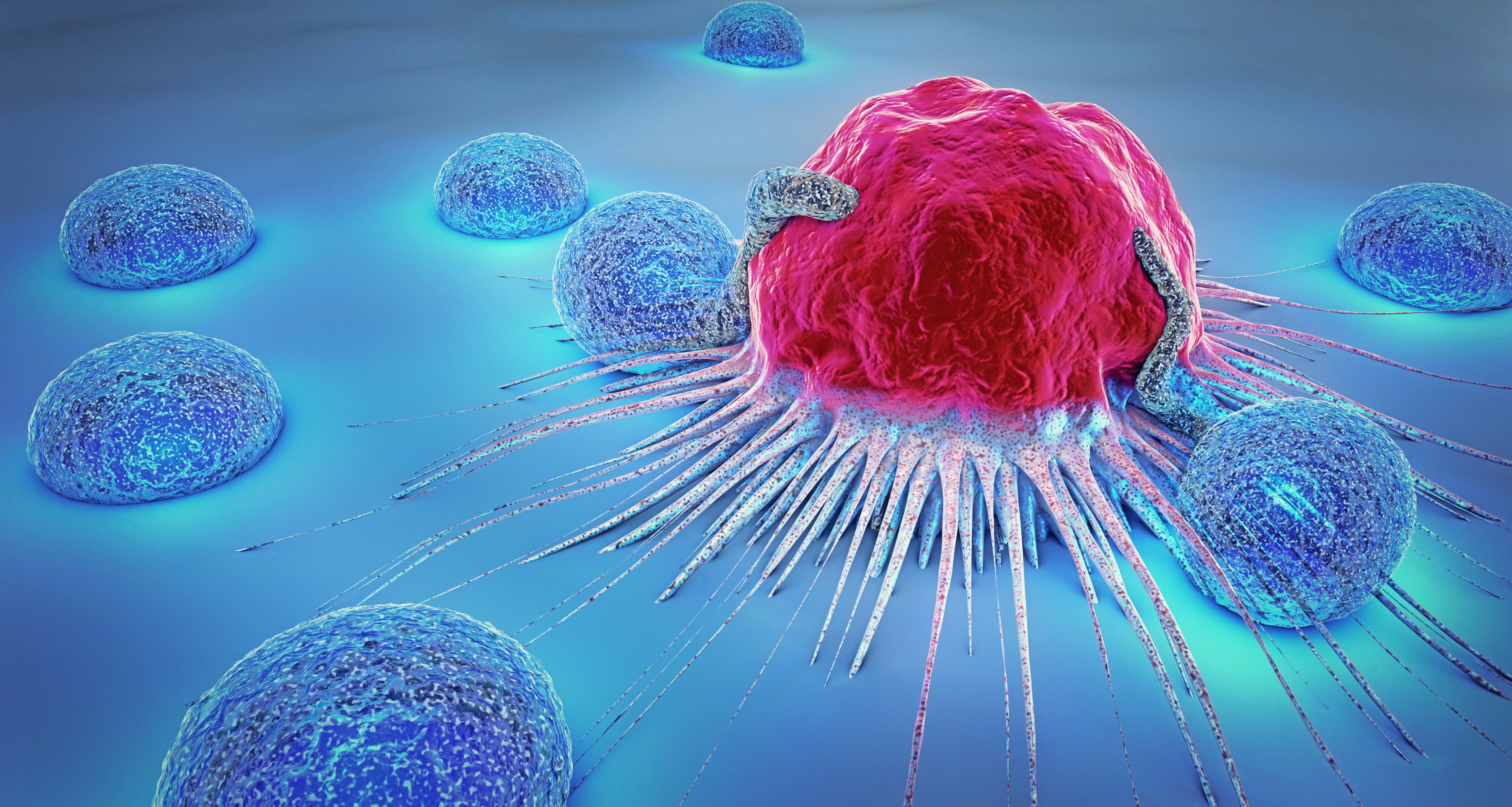Safety Review Committee Supports CX-2051 Trial Continuation in Solid Tumors
An update of phase 1 data from the CTMX-2051-101 study is expected to be available by the first quarter of 2026.
CX-2051 dose expansions, which include dose levels of the agent at 7.2 mg/kg, 8.6 mg/kg, and 10 mg/kg given every 3 weeks, have each enrolled approximately 20 patients.

A safety review committee has supported the continued execution and enrollment of the phase 1 CTMX-2051-101 trial (NCT06265688) evaluating CX-2501 in patients with advanced solid tumors, according to a news release from the drug’s developer, CytomX Therapeutics.1 The committee convened on July 14, 2025.
According to the release, CX-2051 dose expansions, which include dose levels of the agent at 7.2 mg/kg, 8.6 mg/kg, and 10 mg/kg given every 3 weeks, have each enrolled approximately 20 patients.
Additionally, 1 grade 5 treatment-related adverse effect (TRAE), specifically a kidney injury, occurred in a patient who had a solitary kidney as part of a complex medical history. Developers believe the event was secondary to additional AEs including nausea, vomiting, and diarrhea. Developers reported the event to the FDA on July 18, 2025, after being made aware of the event on July 11, 2025.
Preliminary interim data from the phase 1a portion of the trial evaluating the agent in advanced, late-line colorectal cancer (CRC) showed that among 18 patients treated once every 3 weeks who were evaluable for efficacy, 28% (n = 5/18) attained a confirmed partial response (PR) via RECIST v1.1 criteria.2 Additionally, at the 10 mg/kg dose, 43% (n = 3/7) of patients achieved confirmed PRs. The disease control rate (DCR) across dose levels was 94% (n = 17/18).
Patients treated with the investigational agent exhibited a median progression-free survival (PFS) of 5.8 months. Additionally, 10 patients remained on study treatment as of the data cutoff date.
“Since our initial data disclosure in May 2025, phase 1 enrollment has been rapid and is substantially complete. We are on track to provide a data update in the first quarter of 2026. Patient safety remains our top priority as we continue to advance CX-2051 for the treatment of CRC,” Sean McCarthy, DPhil, chief executive officer and chairman of CytomX, said in the news release.1
The phase 1 trial comprised 2 parts: a dose-escalation portion to identify the maximum tolerated dose (MTD) of CX-2051; and a dose-expansion portion to further assess the safety, tolerability, and preliminary efficacy of CX-2051 in indication-specific expansion cohorts.3 Patients with metastatic or locally advanced unresectable solid tumors that progressed following prior therapy were included on trial. Patients also had measurable disease per RECIST v1.1 criteria and an ECOG performance score of 0 to 1.
The coprimary end points of the trial were the safety and tolerability and finding the recommended phase 2 dose of CX-2051. Secondary end points included objective response rate, duration of response, PFS, DCR, and overall survival.
CX-2051—an investigational masked, conditionally activated antibody drug conjugate (ADC)—was engineered to target epithelial cell adhesion molecule armed with a topoisomerase-1 inhibitor payload.
Safety data from the preliminary interim analysis showed that AEs related to CX-2051 were manageable, and no dose-limiting toxicities were observed. Additionally, most TRAEs were grade 1 or 2; the most common of which included diarrhea (n = 18), nausea (n = 11), vomiting (n = 8), fatigue (n = 8), and anemia (n = 5).
Although no grade 4 or 5 TRAEs were observed, multiple grade 3 instances of diarrhea (n = 5), anemia (n = 3), and neutrophil count decreases (n = 2) were observed. Serious adverse effects occurred in 5 patients and included 1 grade 2 event and 4 grade 3 events.
Those ineligible for trial enrollment included patients with a recent history of localized cancers not related to the currently treated cancer; those with malignancies with central nervous involvement; and those who had received systemic anticancer treatment, radiotherapy, or investigational agents within 14 days to starting treatment. Additional exclusion criteria included previous treatment with an ADC, major surgery requiring general anesthesia within 4 weeks of treatment initiation, elevated baseline laboratory values, and serious concurrent illness.
References
- CytomX Therapeutics provides update on CX-2051 phase 1 study. News release. CytomX Therapeutics. August 13, 2025. Accessed August 15, 2025. https://tinyurl.com/kuyuy3ra
- CytomX announces positive interim data from phase 1 dose escalation study of EpCAM antibody drug conjugate (CX-2051) candidate in patients with advanced colorectal cancer (CRC). News Release. Cytomx Therapeutics. May 12, 2025. Accessed August 15, 2025. https://tinyurl.com/59nr5svm
- First in human study of CX-2051 in advanced solid tumors. ClinicalTrials.gov. Updated January 20, 2025. Accessed August 15, 2025. https://tinyurl.com/4ywbxy8u
How Supportive Care Methods Can Improve Oncology Outcomes
Experts discussed supportive care and why it should be integrated into standard oncology care.